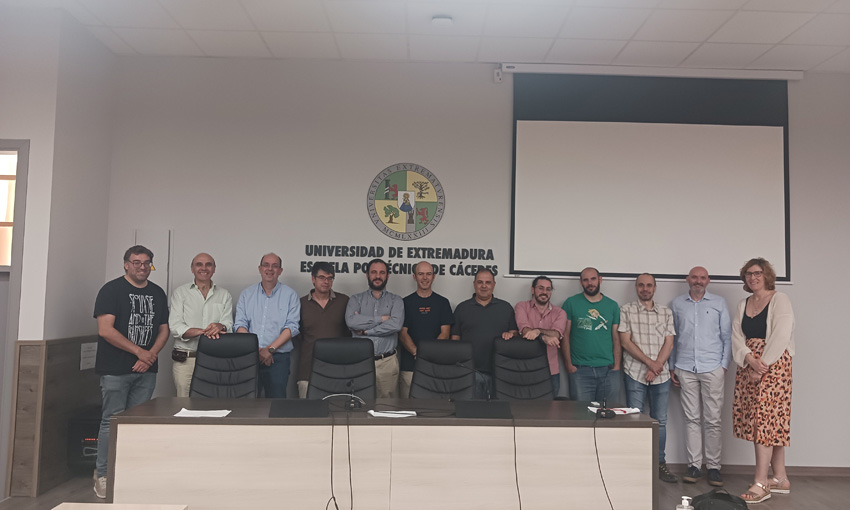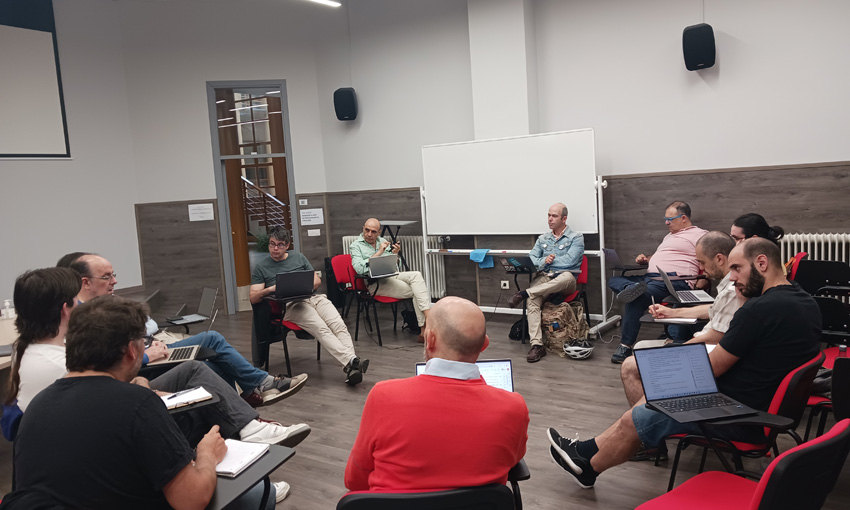

The event brought together researchers from different Schools and Universities, who exchanged ideas and proposals on the use of computers in different research fields.

On June 17 and 18, part of the IMSE team traveled to Cáceres to attend the workshop titled "Possible applications of dedicated computers in complex systems, quantum emulation and artificial intelligence." The event, which was held at the Escuela Politécnica de Cáceres, had the participation of researchers from the Universidad de Extremadura, Universidad Complutense de Madrid, Centro de Supercomputación de Galicia, Kampal Data Solutions, Instituto de Microelectrónica de Sevilla (Universidad de Sevilla, CSIC) and Universidad de Zaragoza.
During the exhibition, various presentations were made that showed some of the problems that, currently or potentially, can be solved by dedicated computers in the fields of complex systems, quantum emulation and artificial intelligence, serving as a basis for subsequent meetings. Among the topics discussed, the following stood out:
The use of computers designed specifically for a specific task can increase by several orders of magnitude both the calculation speed and the energy efficiency of a computing system, but this requires significant work in both the design of the machine itself and programming. and optimization. In this workshop these issues have been addressed and specific activities have been identified that would be necessary to have a dedicated computer in the future that is capable of competing and surpassing conventional supercomputers in the aforementioned disciplines.
Janus series dedicated computers (https://www.janus-computer.com/) already improved the efficiency of conventional supercomputers by several orders of magnitude for the spin glass problem, a paradigm of complex systems, but now they would require an update to remain competitive. As analyzed in the workshop, this would involve the use of the most modern versions of the FPGA programmable logic chips and the corresponding update of the code for optimal use of the silicon of said chips.

The workshop also analyzed how to design quantum annealers based on this type of dedicated computers that can compete both with software emulators and with other "quantum-inspired annealers" existing on the market.
Regarding the possibility of using this type of systems to accelerate artificial intelligence (AI) processes, two main avenues have been studied. On the one hand, the option of direct programming the new types of hybrid FPGAs aimed at artificial intelligence, which have a vector part similar to GPUs and another part of programmable logic similar to classic FPGAs. On the other hand, the identification of AI problems that can be addressed using a special type of neural networks, restricted Botzmann machines, which can be implemented on dedicated computers and have high potential in the field of generative AI.
As a result of these meetings, others arose, such as the possibility of designing a random number generator of very high quality and frequency by combining pseudo-random generators with physical sources of randomness. During this year 2024 and the beginning of 2025, scientific meetings and seminars will be held with the aim of designing a dedicated computer that promotes research in complex systems, quantum emulation and artificial intelligence.
Instituto de Microelectrónica de Sevilla
June 27, 2024